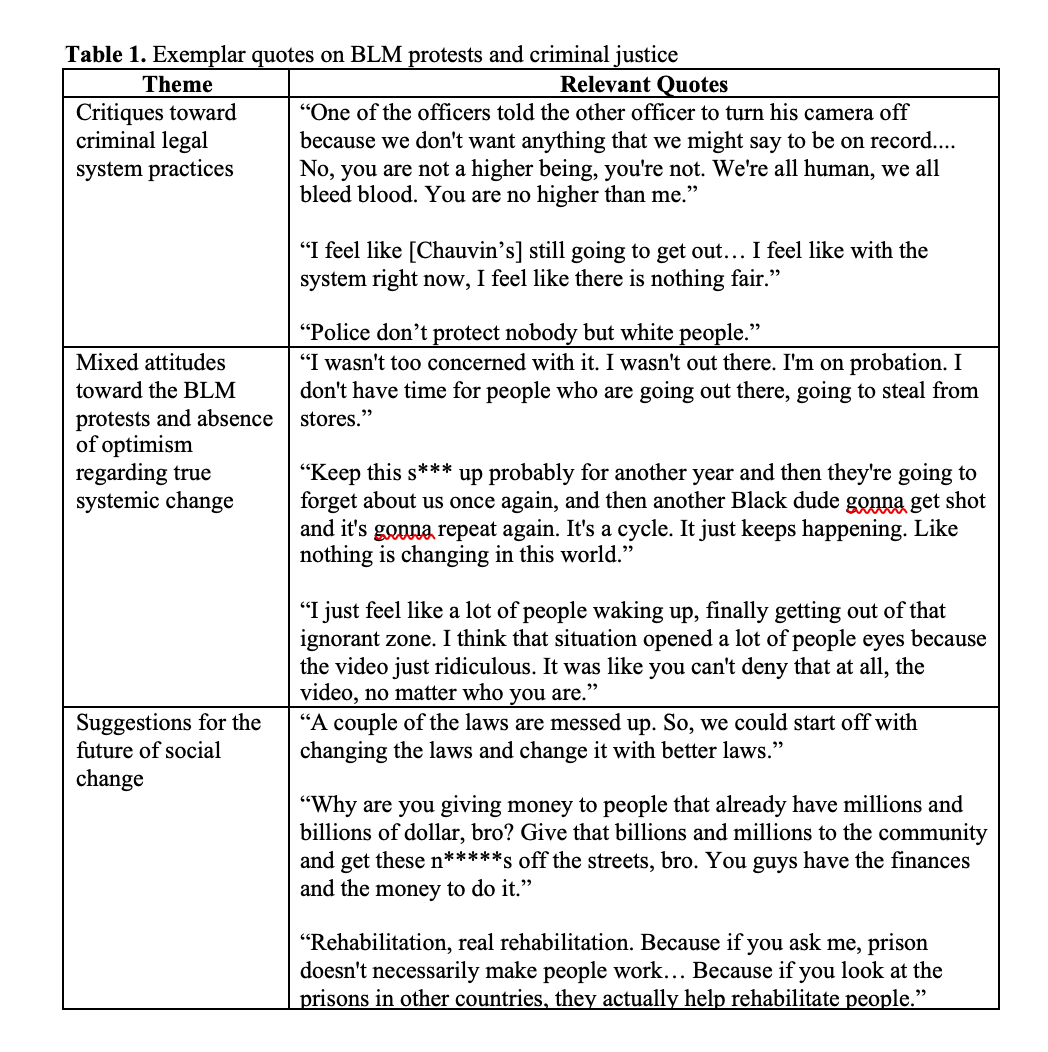Adolescent Medicine: General
Adolescent Medicine 2
2 - “We’re not the first and we’re not going to be the last”: Perspectives of System-Involved Black and Latinx Young Adults on Racial Injustice during the 2020 Black Lives Matter Protests
Publication Number: 2.2

Elizabeth Barnert, MD, MPH, MS
Associate Professor
University of California, Los Angeles David Geffen School of Medicine
Los Angeles, California, United States
Presenting Author(s)
Background:
Racism and carceral involvement negatively impact health. In the summer of 2020, Black and Latinx young people (ages 18-25) reentering the community from jail faced both COVID-19 stay at home orders and the Black Lives Matter (BLM) protests after the murder of George Floyd. Their intersectional identities as racially minoritized persons with direct involvement in the criminal legal system offer a critical perspective that can inform how identity influences perceptions of racial uprisings and legal cynicism. However, scant research has examined the opinions of system-involved young adults in relation to the criminal legal system and the BLM protests.
Objective: We applied a health equity lens to analyze system-involved young adults’ perceptions of the 2020 BLM movement in relation to the practices of the criminal legal system.
Design/Methods:
A sample was gathered from a larger prospective longitudinal qualitative study of young adults ages 18-25 reentering society from jail, conducted from June 2020 to May 2021, that analyzed reentry experiences during the COVID pandemic. Our study sample included young adults who were asked questions pertaining to BLM. We conducted up to nine monthly semi-structured, longitudinal interviews, and inductive thematic analysis of the interview transcripts, which were coded for emergent themes.
Results:
The participants included seven men and two women (n=51 interviews). Seven identified as Black and two as Latinx. Three major themes emerged: critiques toward criminal legal system practices; mixed attitudes toward the BLM protests and absence of optimism regarding true systemic change; and suggestions for the future of social change (Table 1). Overall, participants held a negative view of law enforcement and felt that police officers used their power to harm Black people. While some participants expressed support for the BLM protests, others doubted the protests as a tactic to inflict real change for addressing racial injustice.
Conclusion(s):
Findings demonstrate the depth of legal cynicism and distance from the movement of racial justice for system-involved Black and Latinx young adults that was rooted in their firsthand experiences. A disconnect can persist between social movements and the very people that are advocated for on behalf of the movement. Findings pose implications for boosting optimism for social change that can enhance health equity and countering legal cynicism among system-involved young adults.
